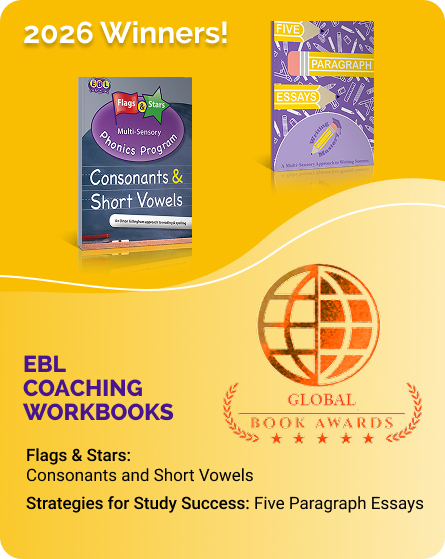
How to Teach Your Kids and Teens How to Use AI Responsibly
Originally published on the NJFamily website

Chances are your teens may have used ChatGPT and other AI tools in some way when tackling homework, papers and projects. While these tools can be helpful for brainstorming, organization and more, they can also be a crutch kids use to cut corners or worse, do the work for them. Now more than ever, it’s important for parents to learn about AI and talk to their kids about using tools like ChatGPT (which has a free version) responsibly and ethically. But where do you begin? We asked educators and professionals who work with AI for tips to help guide the conversation with your kids. Here’s what they shared:
Help them understand ai’s role in education
Kids need to understand that AI is a tool, not a substitute for doing their own research and writing. “AI can provide incredible support by offering different perspectives and quick access to information, but it doesn’t replace human intuition and creativity,” says Lauren Farrow, a former teacher and CEO of Teacher To Techie, which helps teachers leverage AI in the classroom.
Regina Clark, a journalism professor at Ramapo College in Mahwah and a Somerset mom of four teens, dedicated one of her spring semester class sessions to highlighting proper (idea generation) and improper (passing off AI-generated work as your own) use of AI tools. “AI can help clarify concepts and suggest new ways to approach problems, but the hard work and creative solutions should come from students,” Clark says.
Teach the importance of fact-checking
Sure, AI is powerful, but it makes mistakes. “AI tools are only as good as the data they’re trained on. Sometimes, that data can be biased or outdated, leading to inaccuracies,” says Emily Levy, PhD, founder and director of EBL Coaching in Englewood and New York City, a specialized tutoring program that offers individualized instruction for students with special needs. Levy created Writing Mastery, a software program that uses AI to help students improve their writing skills by doing things like scoring and offering quick feedback. Levy says it’s vital to teach kids to verify AI-generated information by crossreferencing with reliable sources like textbooks, academic journals and reputable websites.
“Fact-checking isn’t just about correcting mistakes; it’s about understanding the information landscape,” Farrow says. “It helps students learn how to navigate and discern the quality of information they come across.” It can never be said enough: Make sure your kids double-check any AI-generated information they plan to use.
Promote the ethical use of ai
Using AI to cheat or do assignments is a growing concern in schools. “The temptation to let AI do the work can undermine a student’s learning journey,” Levy says. Talk to your kids about why it’s important to do their own work and how AI can complement, not replace, their efforts and original thoughts. Remind them that the consequences of turning in an AI-generated essay as their own are very serious and may result in a zero, having an incident of cheating documented at school or worse. These consequences can be even more severe in college. Teachers know when a student is getting so much help that their authentic voice is lost in a piece of writing. On top of that, many teachers use software that can easily detect AI writing. Make sure your kids read and understand their teachers’ and school’s policies on AI use. It’s also a good idea to have your kids talk with their teachers about the appropriate use of AI and to be transparent with them when they use AI tools.
Encourage critical thinking
Teach your kids to think critically about the information AI provides, Levy says. “Encourage them to ask questions like, ‘Does this make sense?’ or ‘What other perspectives should I consider?’” Your kid’s mantra should always be: Don’t trust but verify. Show them examples where AI gets it wrong and discuss why it’s essential to question AI outputs, suggests Chris DelliSanti, NoteKnight.com creator, which uses AI to create study tools like flashcards. “A healthy amount of skepticism is going to be important in the future,” he says.
Engaging critically with information is a skill Clark has been teaching for years. “By encouraging a mindset of healthy skepticism, we help children not only in their academic pursuits but also in their ability to navigate a world filled with information and misinformation,” Clark says. Finally, make sure your kids understand the limitations and potential biases of the AI tools they use, says Rayfil Wong, founder of aiwelearn.com, which offers AI education and tips.
Set boundaries and continue the conversation
AI’s role in schoolwork and other areas will continue to change and evolve so keep your conversations going. “Create an environment where your kids feel comfortable discussing AI and its applications,” Levy says. “Encourage them to share their experiences and challenges.”
Remember there are many helpful and meaningful ways to use AI to help students learn, improve their writing and broaden their thinking. “The best use of AI is to destroy writer’s block,” Wong says, adding that using AI to outline ideas is an excellent way for kids and teens, especially procrastinators, to organize and kick start their work.
Inspire them to be good digital citizens
Beyond the classroom, talk to your kids about how AI is being used in the workplace and beyond. “Highlight the positive ways AI is being used to solve real-world problems,” Clark suggests. “This can inspire students to pursue careers that focus on using technology for good.” Talking to your kids about the ethical and responsible use of AI will help them navigate a future where technology plays a huge role in everyday life. Says Farrow: “Let’s prepare our children to be thoughtful and ethical digital citizens, ready for a world where AI is a part of everyday life.”
- This story was written by Dina El Nabli, who leveraged ChatGPT to organize her ideas and get into the headspace of a teen on deadline.

